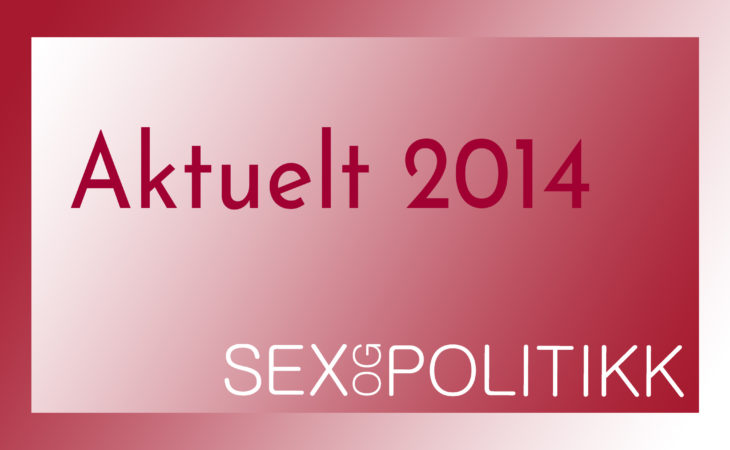IPM får verdensomspennende rettigheter til hivforebyggende medisin

IPM er en ideell organisasjon som jobber for å utvikle nye hivforebyggende verktøy og andre verktøy for kvinner seksuelle og reproduktive helse som skal gjøres tilgjengelig i utviklingsland. IPM mottar støtte fra blant annet Norge i sitt arbeid, og Sex og Politikk er IPMs norske partner.
IPM Receives Worldwide Rights to HIV Prevention Medicine
Expanded public-private collaboration with Janssen Pharmaceutical Companies of Johnson & Johnson will speed development and global distribution of dapivirine-based HIV prevention tools for women.
Silver Spring, MD (May 8, 2014) – The International Partnership for Microbicides (IPM) announced today that it has received exclusive worldwide rights to a promising HIV prevention medicine called dapivirine from Janssen R&D Ireland, one of the Janssen Pharmaceutical Companies of Johnson & Johnson. The agreement expands on IPM’s existing rights to develop, manufacture and commercialize dapivirine-based products for use by women in developing countries and will now give women in developed countries access to products containing dapivirine, such as a vaginal ring that combines dapivirine and a contraceptive.
A future market for a contraceptive-dapivirine ring in developed countries could help fund IPM’s nonprofit mission to develop HIV and multipurpose prevention technologies (MPTs) for women in resource-poor countries, among whom HIV has taken its highest toll. This sustainable funding stream would help ensure that the most at-risk women around the world have affordable access to new prevention technologies in the future.
«Women are in a race against time for new HIV prevention methods, and they need innovative tools to protect themselves and help reverse the course of the epidemic,» said Dr. Zeda F. Rosenberg, chief executive officer of IPM. «We applaud Janssen’s leadership in advancing women’s access to new health technologies.»
Janssen has been an essential partner in IPM’s work, and today’s announcement with Janssen’s newly-established Global Public Health group marks the next step in this longstanding collaboration. Janssen originally licensed dapivirine to IPM under a royalty-free agreement in 2004 to develop the antiretroviral (ARV) medicine as a microbicide for women in resource-poor countries. The expanded worldwide rights are an affirmation of this partnership and dapivirine’s potential. IPM, a nonprofit product developer, can develop and commercialize dapivirine in combination with contraceptives and other ARVs. Through the worldwide rights agreement with Janssen, IPM has opened the door to women’s future access to prevention products in all countries through affordable pricing strategies.
IPM’s most advanced technology containing dapivirine is a monthly sustained-release vaginal ring designed to prevent HIV. The dapivirine-only microbicide ring is now in two parallel Phase III trials in Africa, with results expected in late 2015. Building on Janssen’s earlier work with dapivirine, IPM designed and developed the ring, conducting all the preclinical and clinical work needed to bring the product to late-stage efficacy trials in just seven years. A successful microbicide would be a key tool in helping to reduce new HIV infections in developing countries in the future.
«Our worldwide rights agreement with Janssen is a powerful example of how public-private partnerships can accelerate access to urgently needed, affordable health products,» added Dr. Rosenberg. » By pooling the expertise of partners across sectors, we can more effectively help women at risk for HIV and, ultimately, end the spread of HIV/AIDS altogether.»
Dapivirine belongs to a class of ARVs called non-nucleoside reverse transcriptase inhibitors (NNRTIs) that prevent HIV from making copies of itself. Other dapivirine-based products in IPM’s development portfolio include a combination dapivirine-maraviroc ring, as well as a 90-day MPT ring that combines dapivirine with the contraceptive levonogestrel for dual protection against HIV and unintended pregnancy. IPM’s long-acting MPT ring is now in preclinical studies under a grant from USAID, with a clinical trial planned for 2015.
«This agreement could have profound implications for women’s health,» said Dr. Peter Piot, director of the London School of Hygiene & Tropical Medicine and founding executive director of UNAIDS. «Not only will it expand women’s access to affordable, potentially lifesaving prevention products but also make sure research into new tools continues. It serves as a valuable model for how creative partnerships can help tackle some of the most daunting global health challenges.»
HIV/AIDS is among the greatest obstacles to women’s health and development. Although the last decade has witnessed remarkable achievements against the epidemic – with new infections down by one-third since 2001 – this progress has largely left women behind. In some parts of sub-Saharan Africa, women ages 15 to 24 are three to four times more likely to be infected with HIV as men in the same age group. Women-initiated tools, including microbicides and MPTs in the form of vaginal rings, films and gels, are being developed because the best weapon against HIV is a range of unique options that give women protection that meets their needs.
Since 2004, five major pharmaceutical companies – Bristol-Myers Squibb, Gilead, Merck & Co., ViiV Healthcare and Janssen – have entered into royalty-free licenses with IPM to develop, manufacture and distribute eight ARV products as microbicides in developing countries. These licenses ensure that any new product will be provided at low cost in the settings where these new tools are most urgently needed.
IPM’s work is made possible through the generous support of the Ministry of Foreign Affairs of Denmark, Irish Aid, the Ministry of Foreign Affairs of the Netherlands, the Norwegian Agency for Development Cooperation (Norad), the United Kingdom Department for International Development (DFID), the American people through the United States Agency for International Development (USAID), the Bill and Melinda Gates Foundation, the M.A.C. AIDS Fund and the OPEC Fund for International Development.
Contacts:
IPM US and Europe: Holly Seltzer, hseltzer@IPMglobal.org, +1.301.608.4277
IPM Africa: Leonard Solai, lsolai@IPMglobal.org, +27.21.860.2314
